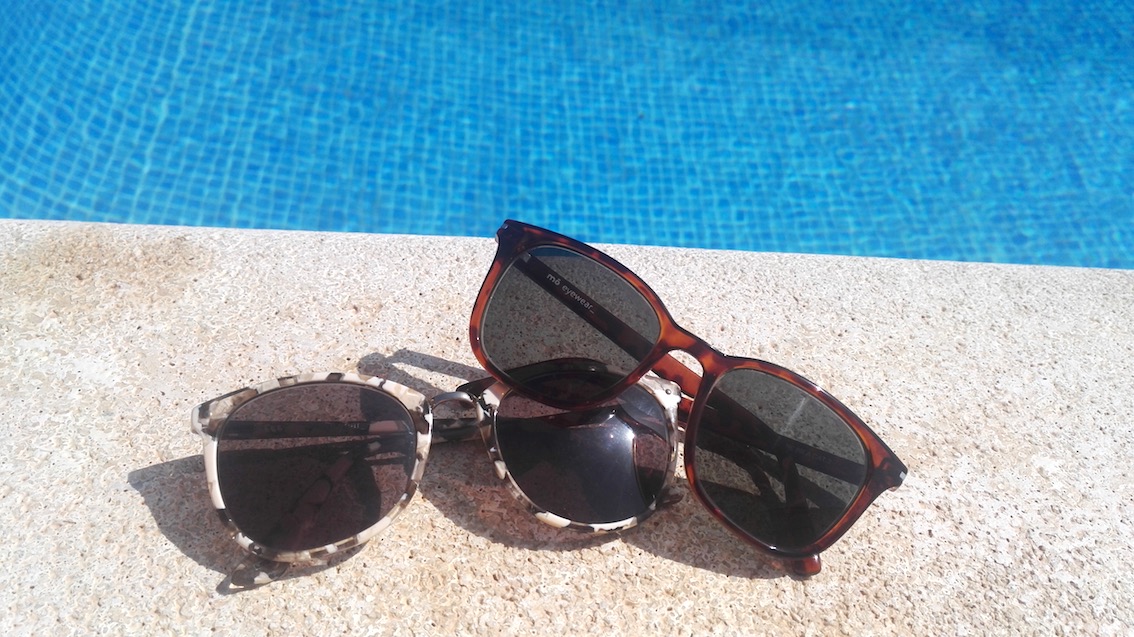
 “The high risk of corneal infection makes wearing contact lenses in unchlorinated water dangerous”
“The high risk of corneal infection makes wearing contact lenses in unchlorinated water dangerous”
Summer is a fantastic time to enjoy the outdoors, having fun in the sea or the pool, and exercising outside or in the gym. But it’s also a time when we need to take care of our eyes. Summer brings with it three potential risks for our eyes: the sun, irritants like pool chlorine and salt water, and eye infections or allergies.
We explain each and how to protect yourself against these problems:
1. The sun
Intense sunlight – and UV radiation in particular – can cause eye damage. This is particularly relevant for the macula, the conjunctiva and the lens. The immediate effect is eye irritation (caused by UV radiation), even at the conjunctiva and corneal level. Macular damage occurs over many years, with repeated sun exposure aggravating macular degeneration. Sun exposure also increases the risk of cataracts. The defence against all of this potential damage is the same in every case: using good quality sunglasses. Sunglasses should be capable of blocking UV radiation to prevent it from penetrating the eye and be dark enough to prevent light sensitivity. Light sensitivity varies depending on the person and different people may require different levels of shading for comfort, depending on where they are. For summer, we recommend using grey-lens sunglasses that offer complete UV protection. Anyone wearing far-sighted glasses may be better using green lenses, while yellow or amber lenses are better suited to the short-sighted.
Remember that glasses that don’t offer good UV protection can aggravate the damage caused when UV radiation penetrates the eye. Darkened lenses encourage the pupils to open wider, letting in even more UV radiation than when you’re not wearing sunglasses. This increases eye damage. That’s why you should always buy your sunglasses from outlets that guarantee that the products they sell meet current eye care regulations and bear the authentic CE mark.
2. Irritation caused by environmental agents, water or wind
These problems can also be largely prevented using sunglasses. It’s almost impossible to avoid the toxic effects of chlorine and other pool hygiene products, so you should always wear a diving mask or goggles when swimming for prolonged periods. This also applies to seawater, which also irritates the eyes, despite the fact that Spanish waters almost never contain toxic substances. Blue flag beaches guarantee clean seawater and are the best for swimming at. It is also worth noting that seawater, as long as it is not overly saline, is generally good for the eyes, thanks to its high osmotic concentration. This means it helps wash the conjunctiva free of excess fats and pollutants.
Sunglasses are also useful against the wind and environmental agents such as dust, which are so prevalent in sandy environments. They not only protect but also help make the eyes feel more comfortable.
3. Allergies and pollutants
Infectious conjunctivitis can be spread in swimming pools by people with certain types of viral conjunctivitis. The condition can also be brought on when the pool water is not as clean as it should be. That’s why chlorination or UV filtration is essential for removing germs in pools. Public pools in Spain are generally well maintained, but it is always best to take precautions when swimming in enclosed water bodies such as lakes and rivers. Wearing contact lenses while swimming is especially dangerous. You should not wear your contact lenses when swimming in unchlorinated fresh water, due to the very high risk of corneal infection. This problem affects up to 1 in 2000 contact lens wearers a year, making keratitis, an infection of the cornea, one of the most common conditions affecting contact lens wearers. Keratitis can cause corneal scarring and even blindness, which is usually only treatable with a cornea transplant.

So, remember to look after your eyes this summer by taking the proper preventive measures. Don’t wear contact lenses when swimming in fresh water or pools and try to protect your eyes with good quality sunglasses. Your eyes will thank you!
Professor of Ophthalmology at Miguel Hernández University
Vissum Ophthalmology Institute of Alicante, Miranza Group
